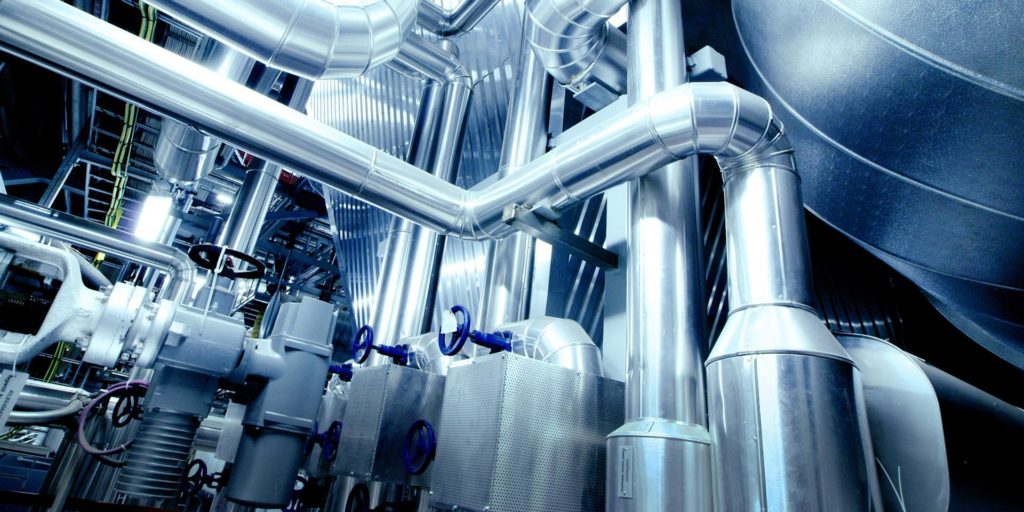Chemical engineering is a diverse and essential field that plays a critical role in shaping our world today.
From designing and developing new materials to producing energy, chemicals, and food, chemical engineers contribute to virtually every aspect of our lives.
This article explores the various roles and applications of chemical engineering in today's world.
Introduction
Chemical engineering is a branch of engineering that applies chemistry, physics, and mathematics to design, develop, and operate chemical processes.
Chemical engineers use their expertise to create innovative products and processes that improve our daily lives.
Today, chemical engineering is a vital part of many industries, including energy, food, pharmaceuticals, and materials science.
History of Chemical Engineering
The history of chemical engineering can be traced back to the late 19th century when the field emerged as a distinct discipline.
In the early days, chemical engineers were primarily involved in designing and operating chemical plants.
Over time, the field expanded to include new areas, such as materials science, biotechnology, and environmental engineering.
Chemical Engineering in the Energy Sector
One of the most critical applications of chemical engineering is in the energy sector.
Chemical engineers play a vital role in designing and developing renewable energy sources, such as solar and wind power.
They also develop new technologies for extracting and processing oil and gas while minimizing their impact on the environment.
Chemical Engineering in the Food Industry
The food industry is another area where chemical engineers make significant contributions.
They are responsible for designing and optimizing food processing techniques, developing new food products, and ensuring food safety.
Chemical engineers also play a crucial role in creating sustainable food production systems that minimize waste and reduce environmental impact.
Chemical Engineering in Materials Science
Chemical engineers are instrumental in the development of new materials that have revolutionized many industries.
For example, they have contributed to the development of lightweight, high-strength materials used in aircraft and automobiles.
They also play a crucial role in developing advanced materials for electronic devices, such as semiconductors and microchips.
Chemical Engineering in Pharmaceuticals

Chemical engineers play a crucial role in the pharmaceutical industry by developing new drugs and optimizing drug manufacturing processes.
They use their knowledge of chemical reactions and material properties to create new drug formulations and optimize production techniques.
Chemical engineers also work to ensure that drugs are safe and effective and comply with regulatory requirements.
Environmental Applications of Chemical Engineering
Chemical engineers are increasingly focusing on environmental applications, such as developing sustainable production methods, reducing waste, and minimizing pollution.
They use their expertise to create new technologies that help industries reduce their environmental impact, such as carbon capture and storage, wastewater treatment, and pollution control.
Challenges Facing Chemical Engineering Today
While chemical engineering has made significant progress in addressing many of the world's challenges, there are still many challenges that remain.
One of the most significant challenges is developing sustainable production methods that minimize waste and reduce environmental impact.
Another challenge is developing new technologies that can address climate change and reduce our dependence on fossil fuels.
Conclusion
Chemical engineering is a critical field that plays a vital role in shaping our world today.
From developing renewable energy sources to creating new materials and drugs, chemical engineers are involved in many areas that have a significant impact on our daily lives.
While the field faces many challenges, chemical engineers continue to work towards developing new technologies and solutions that can help address some of the world's most pressing problems.
FAQs
What is chemical engineering, and what do chemical engineers do?
Chemical engineering is a branch of engineering that applies chemistry, physics, and mathematics to design, develop, and operate chemical processes.
Chemical engineers use their expertise to create innovative products and processes that improve our daily lives.
What are the most critical applications of chemical engineering?
Chemical engineering has many critical
What are the most critical applications of chemical engineering?
Chemical engineering has many critical applications, including energy, food, materials science, pharmaceuticals, and environmental engineering.
Chemical engineers are involved in designing and developing new technologies that improve our daily lives, such as renewable energy sources, advanced materials, and drugs.
What challenges is chemical engineering facing today?
Chemical engineering faces many challenges, such as developing sustainable production methods, reducing waste and pollution, and addressing climate change.
Chemical engineers must also work to ensure that their products and processes are safe and comply with regulatory requirements.
What skills do you need to become a chemical engineer?
To become a chemical engineer, you need a strong foundation in chemistry, physics, and mathematics.
You should also have strong problem-solving skills, the ability to work in teams, and good communication skills.
Many chemical engineers also have advanced degrees, such as a master's or doctorate.
How is chemical engineering contributing to sustainability?
Chemical engineers are working to develop sustainable production methods that minimize waste and reduce environmental impact.
They are also developing new technologies, such as carbon capture and storage, that can help reduce greenhouse gas emissions.
Chemical engineers are also involved in developing renewable energy sources and creating sustainable food production systems.
While network engineering in telecommunications and chemical engineering are both engineering disciplines, they are quite different from one another.
Network engineering in telecommunications focuses on the design, implementation, and maintenance of telecommunications networks, such as phone, internet, and data networks. It involves a combination of hardware and software components, including routers, switches, and network protocols. The primary goal of network engineering is to ensure that data can be transmitted quickly, efficiently, and securely over a network.
On the other hand, chemical engineering involves the design and development of processes and products that involve the transformation of raw materials into useful products. Chemical engineers work with a wide range of materials, including chemicals, polymers, metals, and biological substances. They also use principles of chemistry, physics, and mathematics to develop and optimize processes for the production of these materials.
While the two fields may seem unrelated, there are some areas where they overlap. For example, chemical engineers may be involved in the production of telecommunications equipment, such as electronic components and batteries. They may also be involved in the development of materials used in telecommunications, such as polymers and ceramics.
Overall, both network engineering in telecommunications and chemical engineering are important fields that contribute to the development of new technologies and products that improve our daily lives. However, their areas of focus and expertise are quite different from one another.
Compare with all types of engineering
Comparing chemical engineering with all types of engineering would be a difficult task since there are many different types of engineering with their own unique characteristics and areas of focus. However, there are some general similarities and differences that can be discussed.
Firstly, all types of engineering involve the application of scientific and mathematical principles to solve practical problems. Engineers work to design, build, and optimize products and systems that meet specific requirements and objectives.
In terms of differences, each type of engineering has its own specialized focus. For example, mechanical engineers work on the design and development of mechanical systems, such as engines, machines, and robots. Civil engineers focus on the design and construction of infrastructure, such as buildings, roads, and bridges. Electrical engineers specialize in the design and development of electrical systems, such as power grids, electronics, and communication systems.
Chemical engineering, as previously mentioned, focuses on the design and development of processes and products that involve the transformation of raw materials into useful products. Chemical engineers work with a wide range of materials, including chemicals, polymers, metals, and biological substances.
Another difference between chemical engineering and other types of engineering is that chemical engineering often involves working with complex, multi-phase systems. This can make the design and optimization of chemical processes particularly challenging and require specialized skills and knowledge.
Overall, while there are many differences between chemical engineering and other types of engineering, all types of engineering share a common goal of using science and mathematics to solve practical problems and improve our daily lives.
















